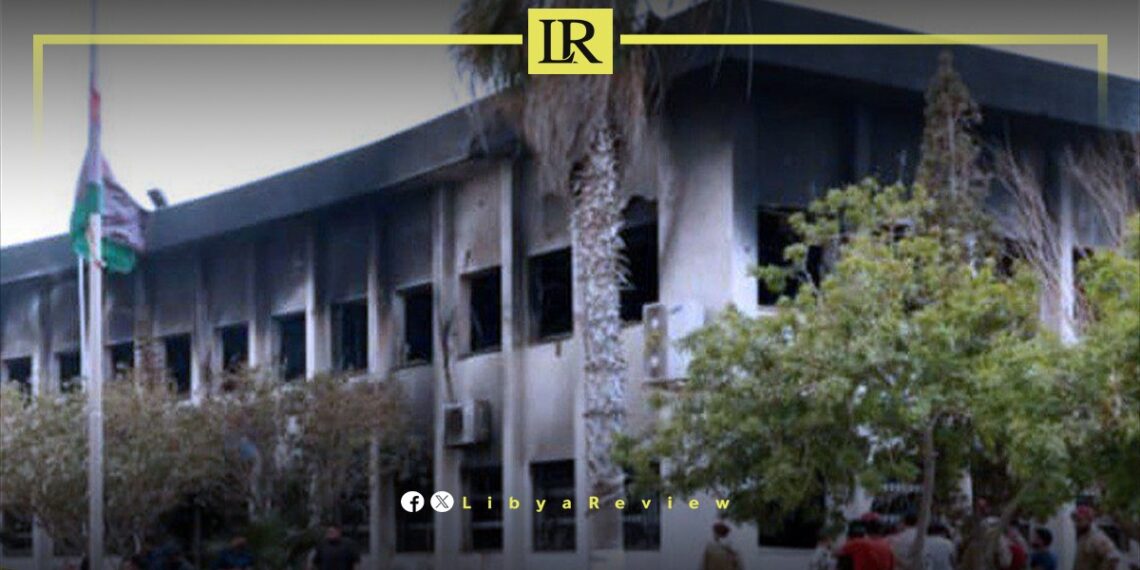On Monday, the Libyan Attorney General ordered the detention of the mastermind behind the terrorist attacks targeting the headquarters of the Foreign Ministry, the High National Elections Commission (HNEC), and the National Oil Corporation (NOC) in 2018.
According to a statement from the Attorney General’s Office, counter-terrorism authorities gathered evidence on the armed attacks that claimed the lives of seventeen state employees.
Following the arrest of the attacks’ planner, the Attorney General initiated an investigation, revealing the suspect’s involvement in plotting to sabotage government headquarters and kill employees.
Evidence also showed the suspect’s role in procuring weapons, ammunition, and explosives for the attacks, facilitating the movement of perpetrators, and coordinating assault missions on government premises.
Libya has been in chaos since a NATO-backed uprising toppled longtime leader Muammar Gaddafi in 2011. The country has for years been split between rival administrations.
Libya’s economy, heavily reliant on oil, has suffered due to the ongoing conflict. The instability has led to fluctuations in oil production and prices, impacting the global oil market and Libya’s economy.
The conflict has led to a significant humanitarian crisis in Libya, with thousands of people killed and many more displaced. Migrants and refugees using Libya as a transit point to Europe have also faced dire conditions.
The planned elections for December 2021 were delayed due to disagreements over election laws and the eligibility of certain candidates. This delay has raised concerns about the feasibility of a peaceful political transition.
Despite the ceasefire, security remains a significant concern with sporadic fighting and the presence of mercenaries and foreign fighters. The unification of the military and the removal of foreign forces are crucial challenges.


